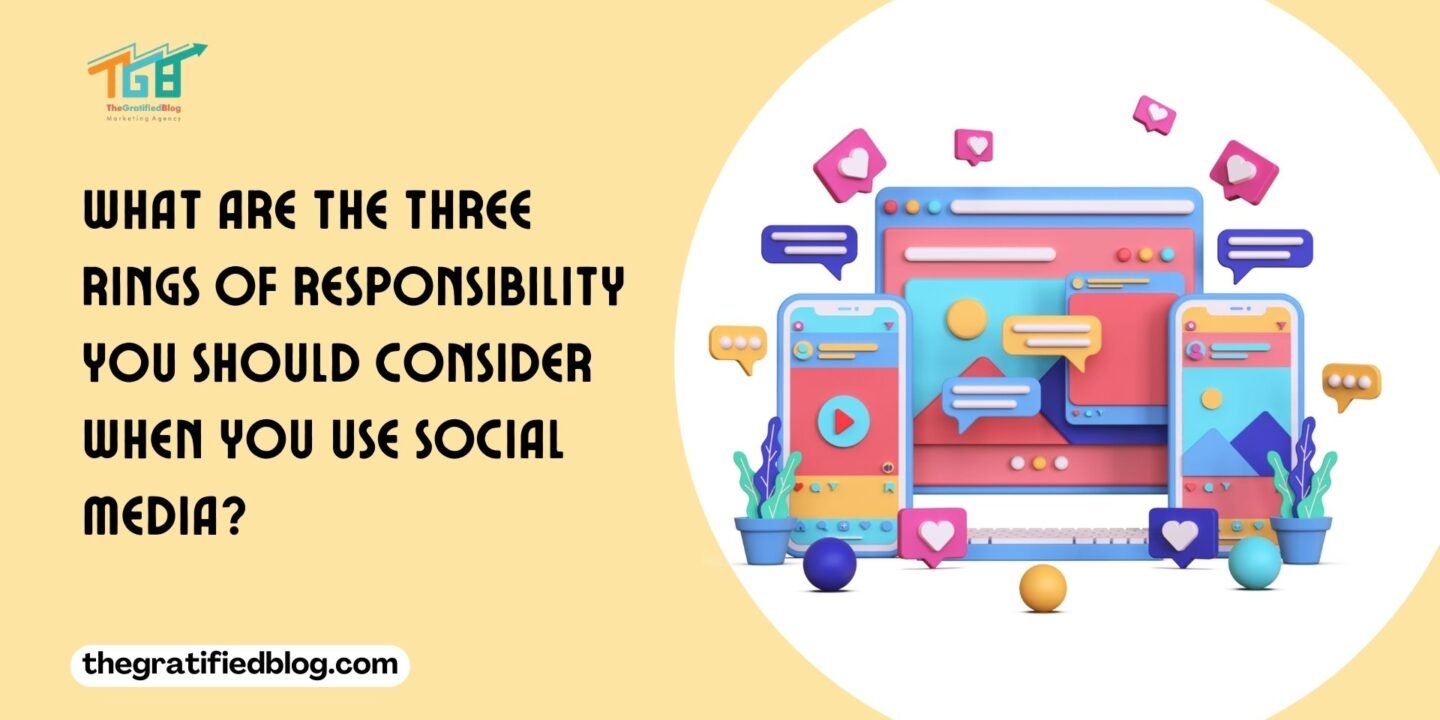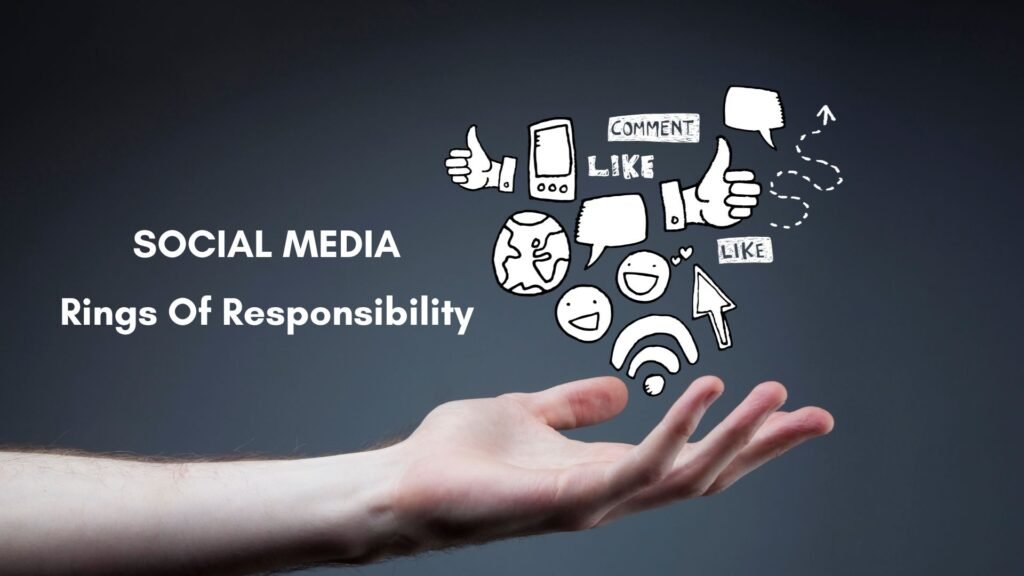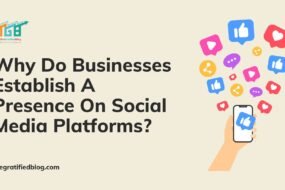
In today’s digital age, social media has become a powerful tool for individuals and businesses to connect, share information, and build relationships. However, with this power comes great responsibility. As users of social media platforms, it is important to consider the three rings of responsibility: Personal, Social and Professional. Each ring represents a different level of accountability and ethical consideration when engaging with social media.
This blog, “What are the three rings of responsibility you should consider when you use social media?” will explore the importance of these three rings of responsibility and provide insights into navigating the complex world of social media with integrity and mindfulness.
What Are The Three Rings Of Responsibility You Should Consider When You Use Social Media?

Understanding and embracing the three rings of responsibility is crucial for maintaining a positive and impactful online presence on social media. These rings serve as a guiding framework to help us make informed decisions, promote constructive interactions, and uphold ethical standards. Let us explore each of these rings in detail, providing insights and practical tips for responsible social media use.
Personal Responsibility
- Self-Awareness
Your online presence reflects your personality, beliefs, and values. Therefore, self-awareness is the first step in exercising personal responsibility on social media.
- Mindful Posting: Think before you post. Consider the implications of your words and images. What may seem funny or harmless to you could be offensive or hurtful to others.
- Privacy Settings: Regularly review and adjust your privacy settings. Decide who can see your social media posts and personal information. Be cautious about sharing sensitive data that could lead to identity theft or other privacy issues.
- Authenticity: Be authentic but also considerate. Share your true self while being mindful of how your content might be perceived. Authenticity builds trust and fosters genuine connections.
- Digital Footprint
Everything you share online contributes to your digital footprint. This footprint can have long-term consequences for your personal and professional life.
- Permanent Records: Remember that the internet never forgets. Even if you delete a post, it may still exist in archives, screenshots, or backups. Consider the permanence of your posts before sharing.
- Reputation Management: Regularly search your name online to see what comes up. Address any negative or inaccurate information that could harm your reputation.
- Content Curation: Curate your content to reflect positively on you. Highlight your interests, achievements, and positive interactions.
- Mental Health
Social media can have a profound impact on your mental health. Being responsible means recognizing and managing this impact.
- Screen Time: Limit your screen time to avoid becoming overwhelmed. Set specific times for checking social media and stick to them.
- Positive Interactions: Engage in positive and supportive interactions. Avoid online arguments and negative comment sections.
- Seek Support: If social media affects your mental health, seek support from friends, family, or professionals. Don’t hesitate to take breaks from social media when needed.
Social Responsibility
- Respect and Empathy
Social media is a platform where diverse opinions and experiences converge. Exercising social responsibility means respecting others and showing empathy.
- Constructive Engagement: Engage in discussions constructively. Listen to others’ viewpoints and respond respectfully, even if you disagree.
- Cultural Sensitivity: Be aware of cultural differences and avoid making assumptions or stereotyping. Respect others’ traditions, beliefs, and values.
- Avoiding Harm: Do not engage in or support bullying, harassment, or hate speech. Report harmful content and stand up against online abuse.
- Information Sharing
The spread of misinformation and fake news is a significant issue on social media. Being socially responsible means sharing information responsibly.
- Fact-Checking: Verify the accuracy of the information before sharing. Use reliable sources and fact-checking websites to confirm the validity of news stories and claims.
- Source Credibility: Share content from credible and trustworthy sources. Avoid spreading rumours or unverified information.
- Educational Content: Share educational and informative content that can benefit others. Promote awareness and understanding of important issues.
- Community Building
Social media has the power to bring people together. Use this power to build positive and supportive communities.
- Supportive Environment: Create and foster environments where people feel safe and supported. Encourage positive interactions and inclusivity.
- Activism and Advocacy: Use your platform to support causes you believe in. Raise awareness about social issues and encourage collective action.
- Collaboration: Collaborate with others to create meaningful content and initiatives. Leverage social media’s collective power for good.
Professional Responsibility
- Brand Representation
If you are using social media for professional purposes, how you represent yourself and your brand is crucial.
- Consistent Branding: Maintain a consistent brand image across all social media platforms. Ensure your profiles, posts, and interactions align with your professional values and goals.
- Professional Conduct: Conduct yourself professionally at all times. Avoid posting content that could damage your professional reputation or your employer’s brand.
- Engagement: Ensure your customer engagement professionally. Respond to comments and messages promptly and respectfully.
- Networking and Opportunities
Social media is a powerful tool for networking and professional growth. Use it responsibly to build and maintain valuable connections.
- Professional Networks: Join professional groups and networks relevant to your industry. Participate in discussions and share your expertise.
- Opportunities: Look for and share job openings, collaborations, and events. Help others in your network by providing valuable information and resources.
- Mentorship: Offer mentorship and support to others in your field. Share your knowledge and experiences to help others grow professionally.
- Legal and Ethical Considerations
When using social media professionally, be aware of the legal and ethical implications.
- Compliance: Ensure your social media activities comply with relevant laws and regulations, including intellectual property rights, data protection laws, and advertising standards.
- Transparency: Be transparent about endorsements and partnerships. Disclose any affiliations or sponsorships.
- Ethical Conduct: Uphold ethical standards in all your social media interactions. Avoid deceptive practices and respect confidentiality agreements.
Frequently Asked Questions
Q1. What are the three rings of responsibility on social media?
Ans. The three rings of responsibility on social media are Personal Responsibility, Social Responsibility, and Professional Responsibility. These encompass individuals’ online reputation management, interaction with others, and professional representation.
Q2. Why is personal responsibility important on social media?
Ans. Personal responsibility is crucial because it directly affects your digital footprint, reputation, and mental health. Being mindful of what you share and how you engage with others and protecting your privacy helps maintain a positive online presence and ensures long-term benefits.
Q3. What does social responsibility entail on social media?
Ans. Social responsibility involves respecting others, sharing information responsibly, and building positive communities. It means being empathetic, avoiding harmful behaviour, fact-checking information before sharing, and supporting social causes and inclusivity.
Q4. What is the significance of professional responsibility on social media?
Ans. Professional responsibility is important for maintaining a consistent brand image, building valuable connections, and adhering to legal and ethical standards. It helps in professional growth, reputation management, and leveraging social media for career opportunities.
Q5. How do these three rings of responsibility interconnect?
Ans. These rings interconnect by influencing your overall online presence. Personal responsibility affects your reputation, social responsibility shapes your interactions and community engagement, and professional responsibility impacts your career and brand image. Together, they ensure a balanced and responsible approach to using social media.
Conclusion
In a landscape where digital footprints can have lasting impacts, the three rings of responsibility on social media serve as a compass for navigating the online world with integrity. Individuals can establish a digital presence rooted in trustworthiness, positivity, and social good by recognizing and upholding corporate, personal, and societal obligations. Remember, every post, comment, or interaction has the potential to shape perceptions and influence others.
Embracing these rings of responsibility is more than a strategy—it’s a commitment to making a meaningful and positive impact in the digital sphere. You can contribute to a more respectful, ethical, and authentic online community by prioritizing responsibility in your online engagements.








No Comments